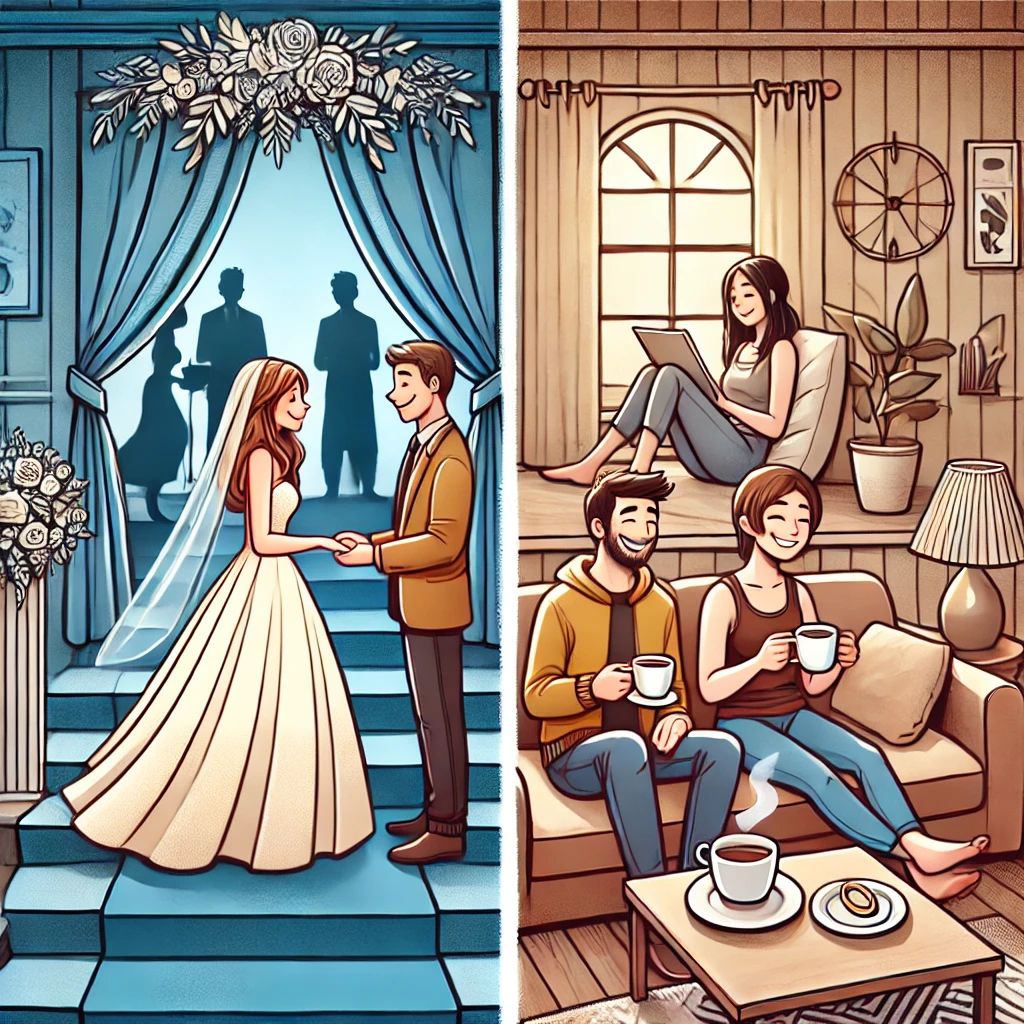
Marriage is often celebrated as the ultimate milestone of adulthood. But behind the fairy tales and wedding hashtags, there’s a powerful current many people swim against: marriage pressure. In many communities, it’s not just about finding love — it’s about meeting religious standards, honoring cultural traditions, and living up to family expectations.
If you’ve ever felt torn between your personal desires and what’s “expected” of you, you’re not alone. Let’s unpack how religion, culture, and love often clash when it comes to marriage — and how you can navigate the pressure without losing yourself.
The Power of Religious Expectations in Marriage
Across many faiths, marriage isn’t just a personal choice — it’s a spiritual duty.
In Christianity, marriage is seen as a sacred covenant reflecting God’s love. Islam considers marriage half of one’s faith, making it a moral and social obligation. Hinduism places marriage at the center of dharma (duty), believing it’s essential for spiritual progress.
It’s not just the texts, though. Religious communities often reinforce expectations:
- Encouraging marriage at a young age
- Frowning upon interfaith unions
- Viewing singleness as incomplete or selfish
According to a Pew Research Center study, in many religious groups, marriage rates are significantly higher than among the non-religious, showing how deeply faith impacts these life choices.
Bottom line: Religious belief doesn’t just inspire marriage; it often demands it.
Cultural Norms and Their Influence on Marriage Choices
Even outside of religious contexts, culture plays a huge role in when, how, and whom people marry.
In South Asian cultures, for example, arranged marriages — where families introduce potential partners — are still common. In parts of the Middle East, marriage is often seen as a way to protect family honor. Even in more liberal societies, unwritten rules about marrying “at the right age” persist.
Common cultural pressures include:
- Marrying before a certain age (often 25–30)
- Choosing a partner from the same ethnic or social background
- Bearing children soon after marriage
Real talk: these traditions aren’t just harmless customs. They can create heavy emotional and social pressure, especially for those who want different lives.
Love vs. Duty: The Emotional Tug-of-War
Here’s where things get raw.
Many people grow up dreaming of a love story on their own terms — only to hit a wall when family, religion, or culture say otherwise.
When you’re emotionally invested in a partner who doesn’t fit your community’s mold, it’s brutal. You might face:
- Guilt for disappointing loved ones
- Anxiety about defying tradition
- Fear of being cut off or judged
Psychological studies show that relationship satisfaction plummets when external pressures override personal choice. Love becomes a battleground between loyalty to yourself and loyalty to your roots.
No matter how strong you are, this emotional conflict cuts deep.
Modern Shifts: Breaking Away from Tradition
The good news? Things are changing — fast.
Thanks to globalization, higher education, and social media, more people are questioning the “one-size-fits-all” model of marriage.
New trends include:
- Later marriages: People prioritize careers and self-growth before tying the knot.
- Interfaith and intercultural relationships: Love is crossing traditional boundaries.
- Choosing singlehood: Some ditch marriage altogether, embracing independence.
Public figures and influencers are also speaking out, showing that happiness doesn’t have a single definition. It’s inspiring a new generation to choose partners — or no partner at all — based on love, not pressure.
How to Navigate Marriage Pressure Without Losing Yourself
Feeling the heat? Here’s how to deal:
- Set clear boundaries: Be honest about your needs and timelines with family and community.
- Communicate openly: Explain your perspective without being defensive or dismissive.
- Seek professional support: Therapists familiar with cultural and religious dynamics can offer guidance.
Remember: You have the right to create a life that reflects your truth — not just your parents’ expectations or your culture’s standards.
Books like “The Defining Decade” by Meg Jay and podcasts like “Where Should We Begin?” by Esther Perel offer incredible insights for anyone facing these pressures.
Conclusion
Marriage pressure is real, and it’s layered. Religion, culture, and personal love stories often pull us in different directions. But while tradition deserves respect, your happiness matters just as much.
You don’t have to follow a script you didn’t write.
Whether you choose marriage, partnership, or solo living, make sure it’s your choice — guided by love, not fear.
What’s your experience with marriage pressure? Share your story below — your voice could inspire someone else!



